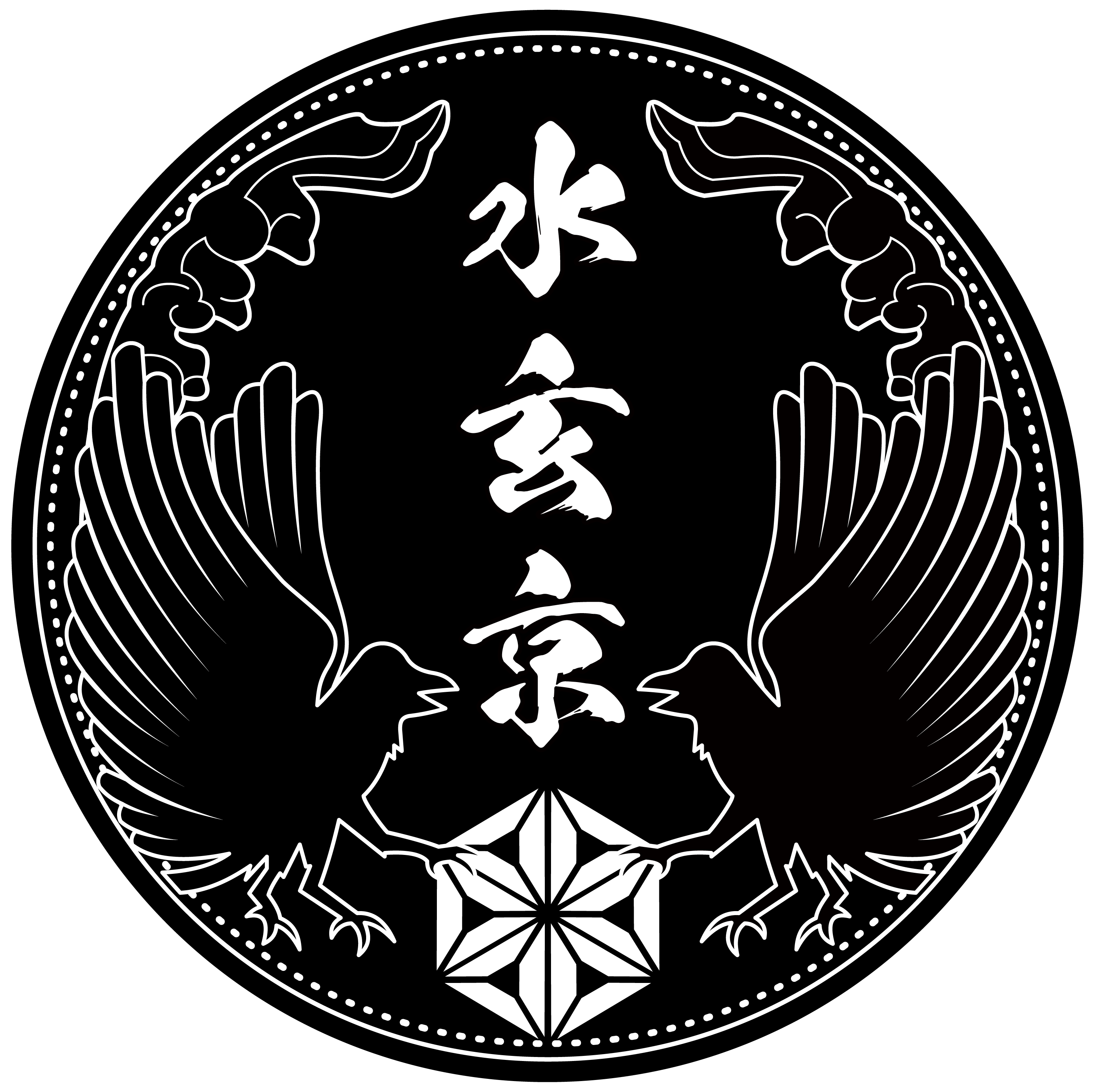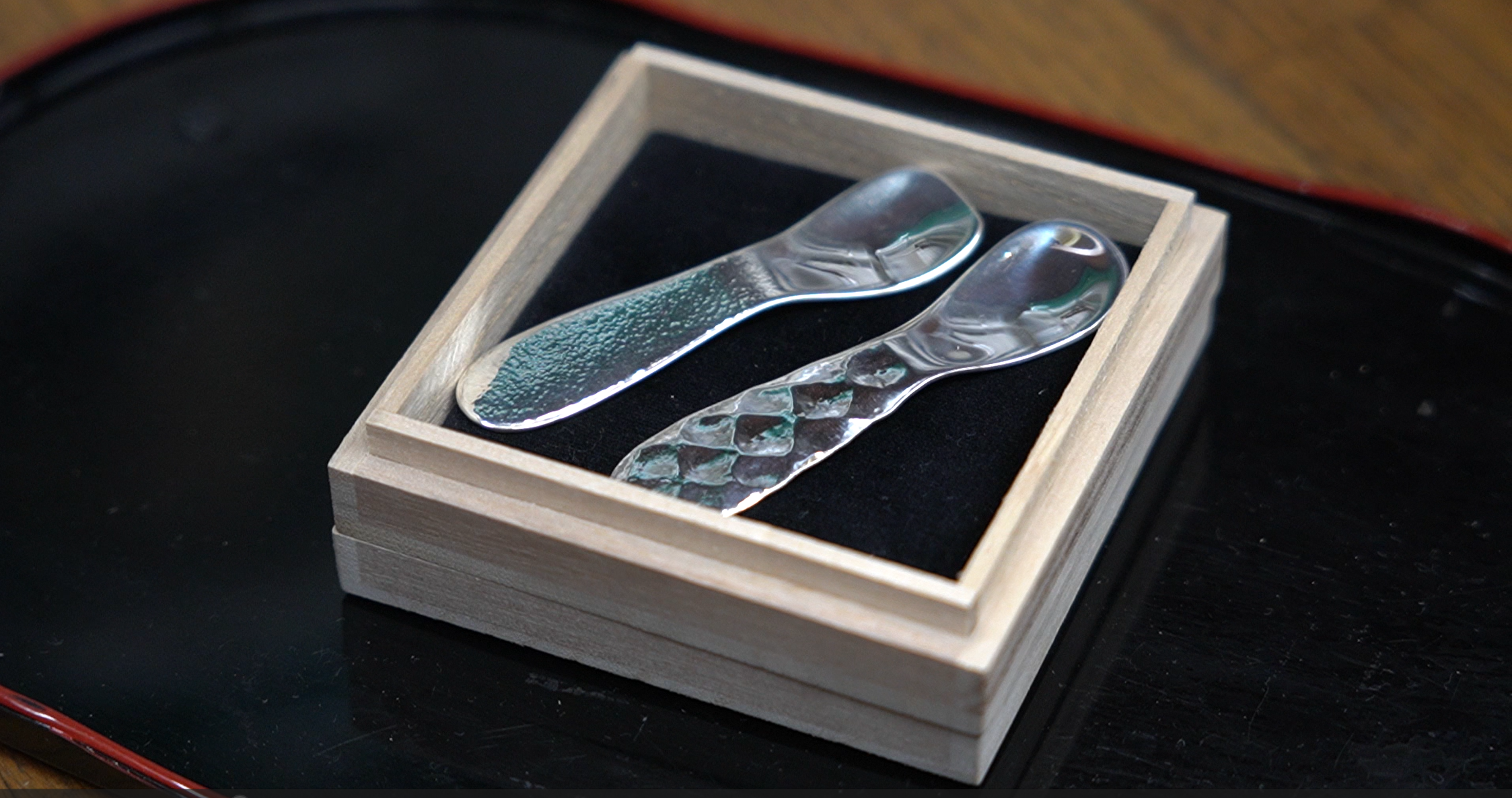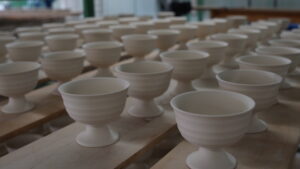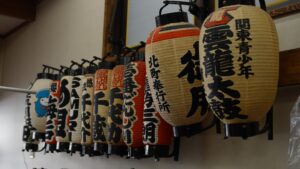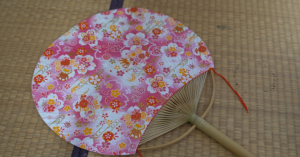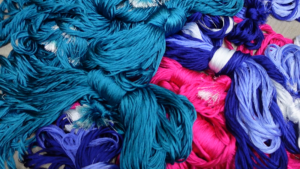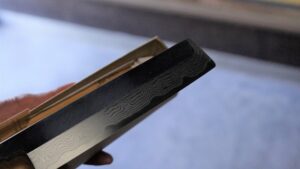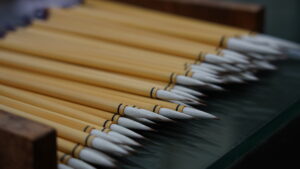Making Process
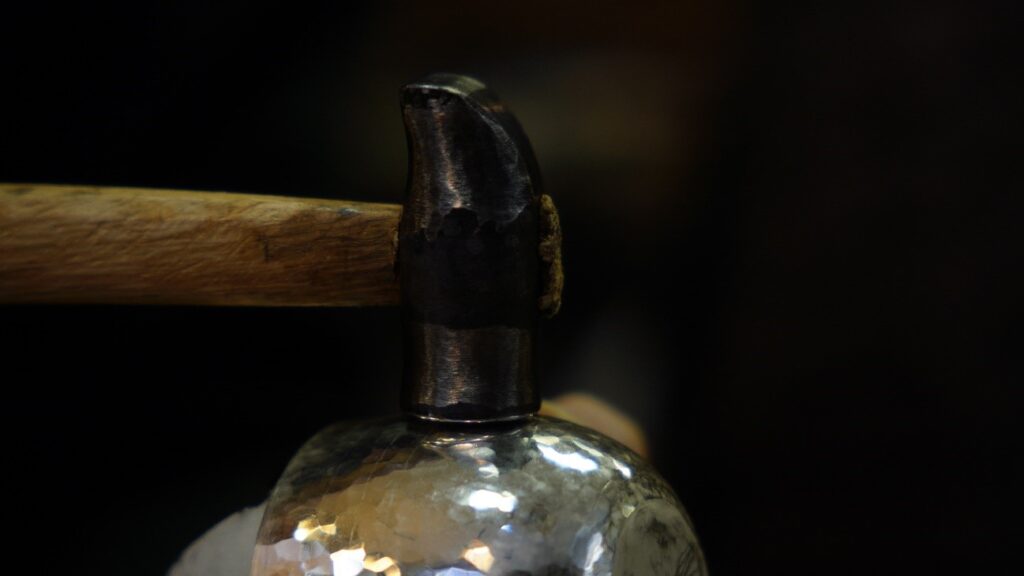
Forging
In order to make it easier to process, the base metal is heated to soften it. A silver plate cut into a circular shape is placed on a wooden base, fitted with a tool made of iron called an “ate-gane,” and hammer them to deform it into shape. The hardened base metal is heated again to soften it, and this process is repeated. This process is really important to make the desired shape.
Engraving
A process of molding and decorating using chisels. The process involves the use of a variety of chisels.
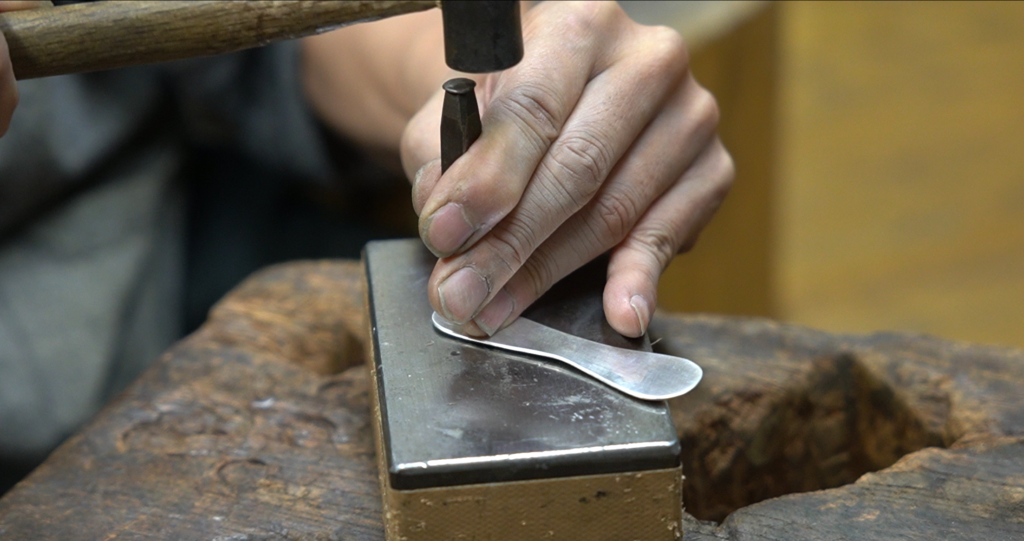
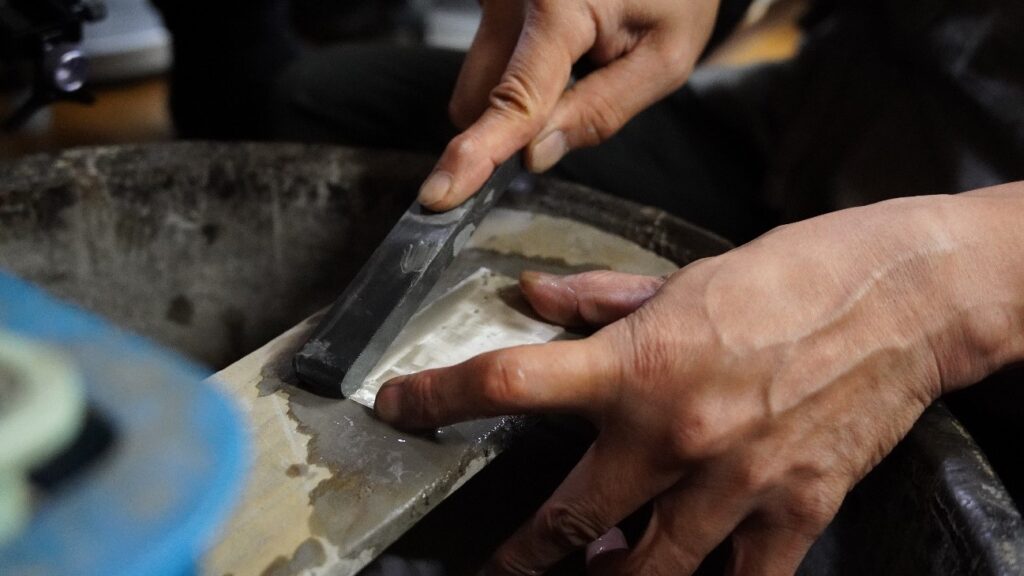
Finishing
Polishing is done for this final process. Silver that was a matte material will now have a glossy finish. Other traditional techniques include antique finish, boiled finish, and matte finish are done to make this craft.
You can watch the Making process on YouTube!
What is Tokyo Silverware?
Metal crafts are made mainly in Taito, Arakawa, and Bunkyo wards of Tokyo. It is a craft in which silver is formed and finished by using traditional techniques are forging engraving and finishing process.
Features of Tokyo Silverware
Tokyo Silverware has a large number of products that make people ask, “Did you make this beautiful curve and design by hand from a silver plate? The greatest characteristic of this silver craft is the design created by the dedicated handwork. They have a look unique to silver that cannot be produced by machines, as well as a chic design that is inspired by the Edo period. As time passes, the silver darkens and get a matte appearance. Enjoying this as “smoked silver” is another way to enjoy this craft. In addition to seeing the finished craft andusing it, anther way to enjoy Tokyo silverware even more is to look at the work process. Seeing how the shape is formed step by step will make you feel more attached to this product.
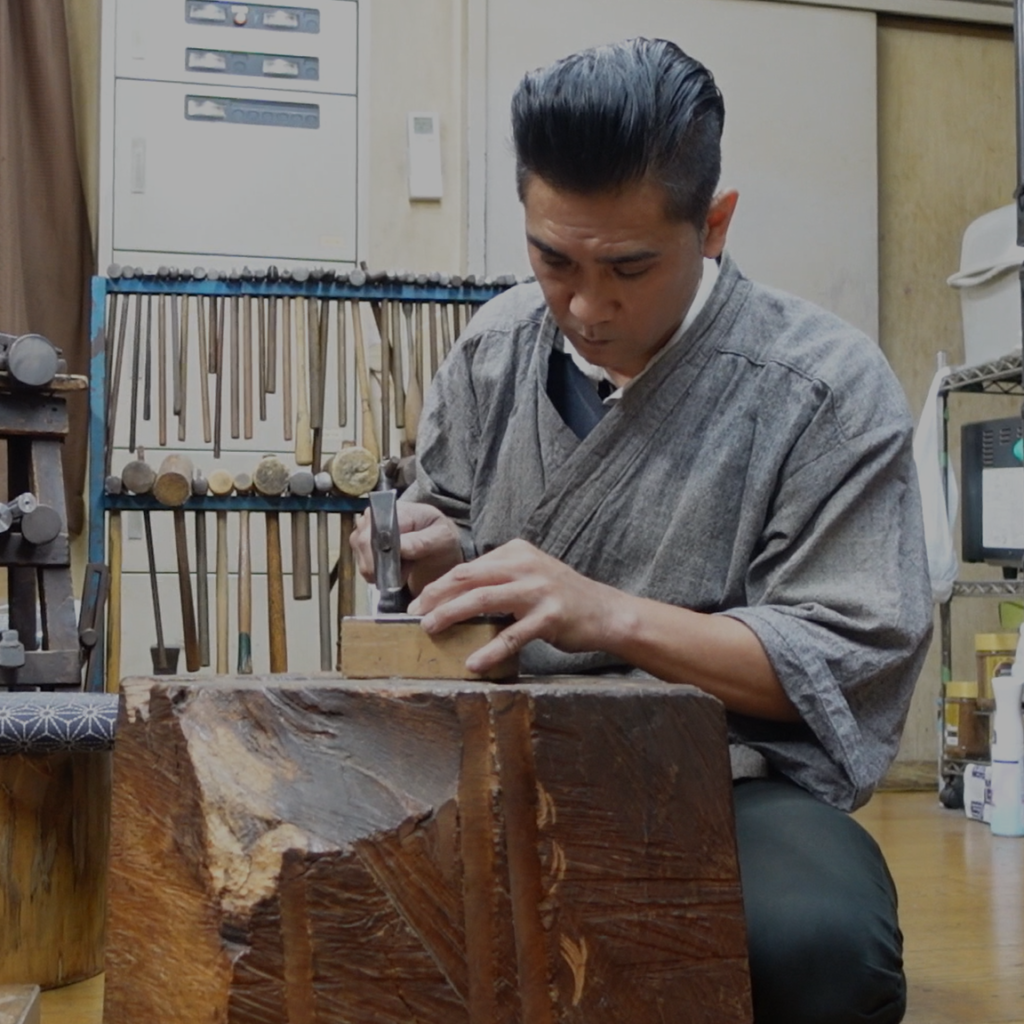
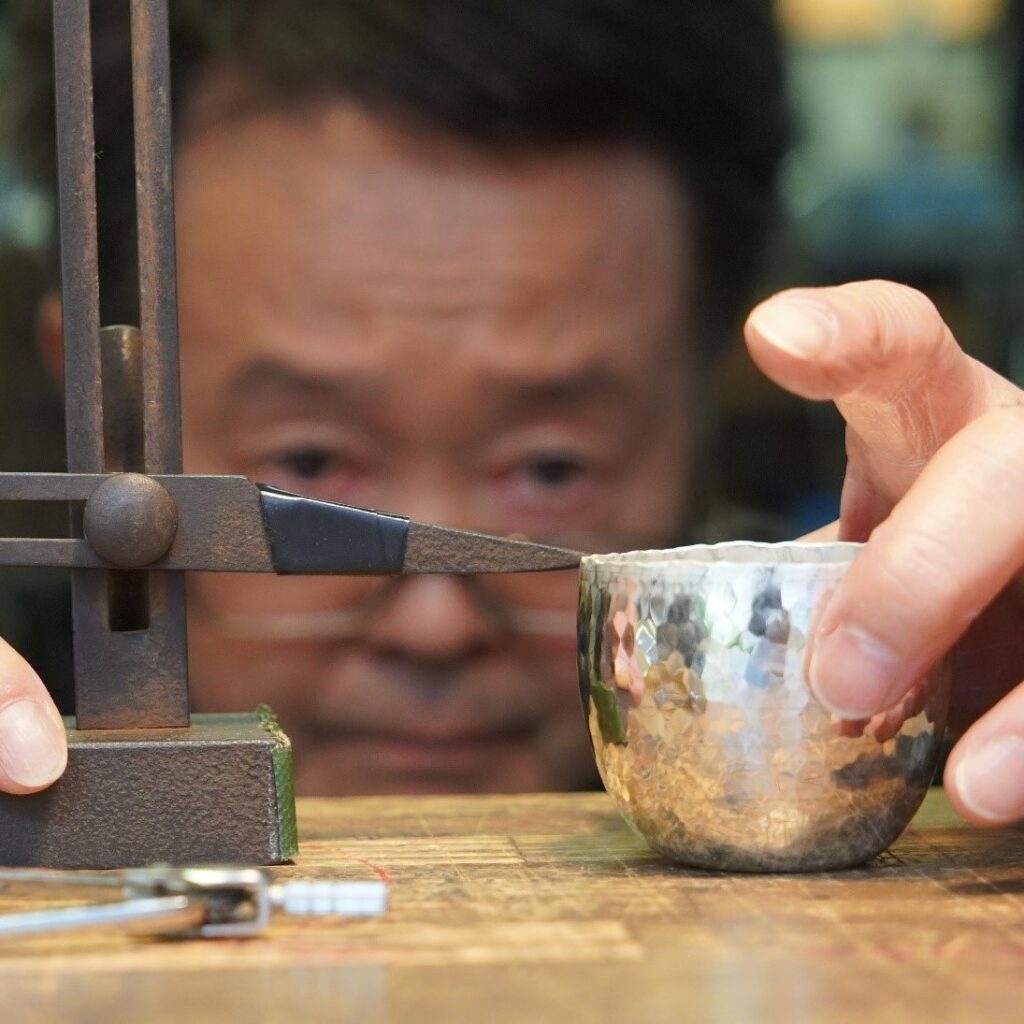
History of Tokyo Silverware
It is known as one of the crafts with a long history, as it was recorded in the Engishiki, a Japanese statute dating back to the Heian period (916), in which silverware was recorded. Since silver coins were produced from the Edo period (1603-1867) and silver ornaments were popular at that time, craftsmen called “shiroganeshi” (silver masters) refined each other’s skills and developed their techniques. After the Meiji period (1868-1912), many vases made of silver were exported, and after the war, the demand for silver products increased as foreigners started came to Japan.
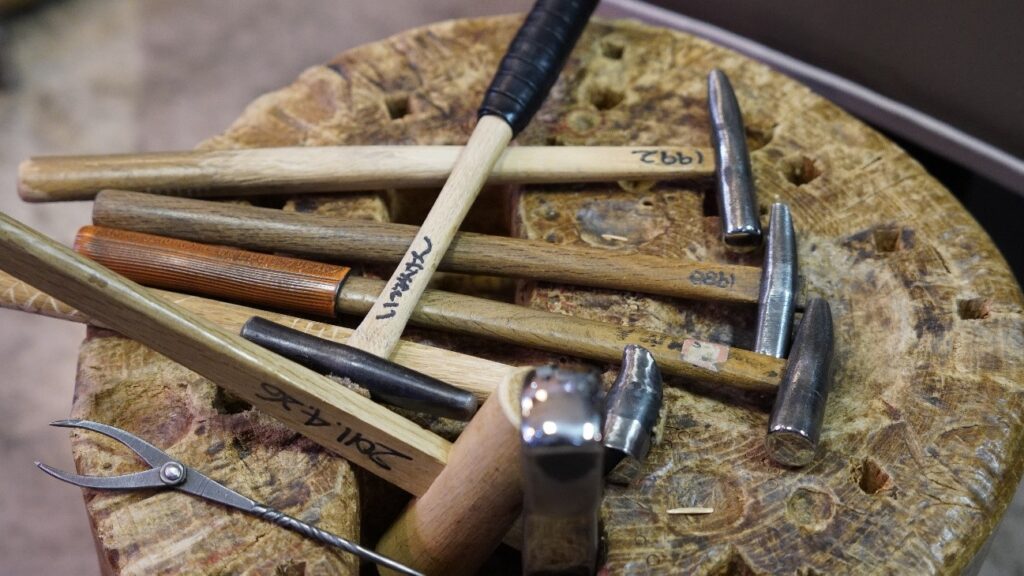
Impressive factor
The main products of Tokyo Silverware are vessels, ornaments, and cutlery. “Sterling silver ice spoon,” is a product unique to Tokyo Silverware among them. The world standard for pure silver is 92,5, but Nisshin Kikinzoku’s ice spoon is 99,9, which is as close to pure silver as possible, and its thermal conductivity is overwhelmingly high. Furthermore, the high purity of silver makes it much easier to clean silver tableware. With 92.5 silver, it is common for us to go to a retailer to remove the tarnish with a special treatment, but with 99.9 silver, the tarnish can be removed with a quick wipe with your finger.
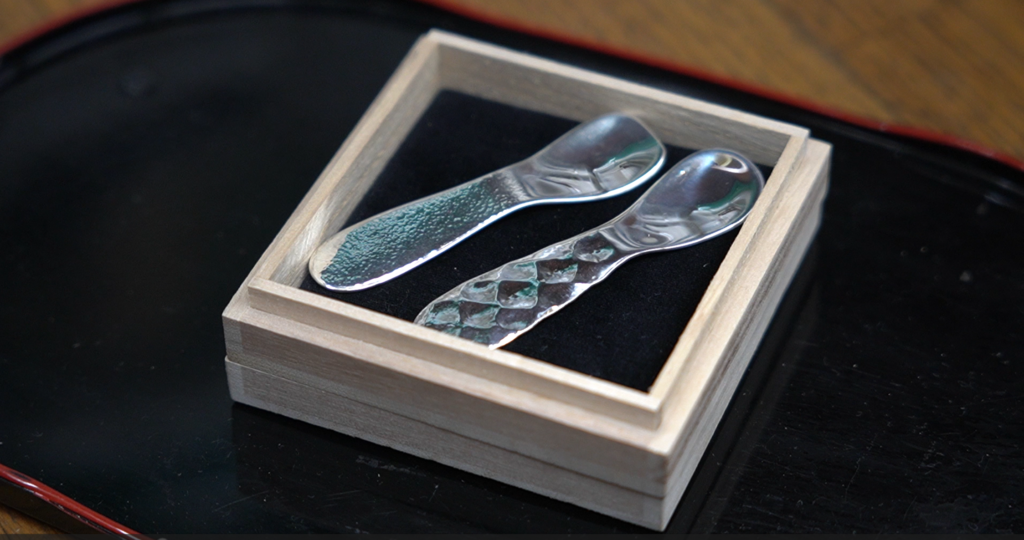
Crafts that have been handed down for more than 1,000 years remain today and continue to evolve further. Tableware and spoons used in daily life. Since they are used every day, why not consider using something that is hard to wear out for a long time? Tokyo Silverware, including sterling silver ice spoons, is available at the Suigenkyo online store. Please visit us to check the practical craft.
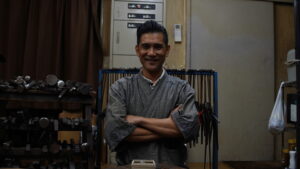
Suigenkyo Online Store
We offer a wide range of products including tableware, accessories, and interior design.
Suigenkyo YouTube
You can see the making process of the products listed on Suigenkyo Online Store.
